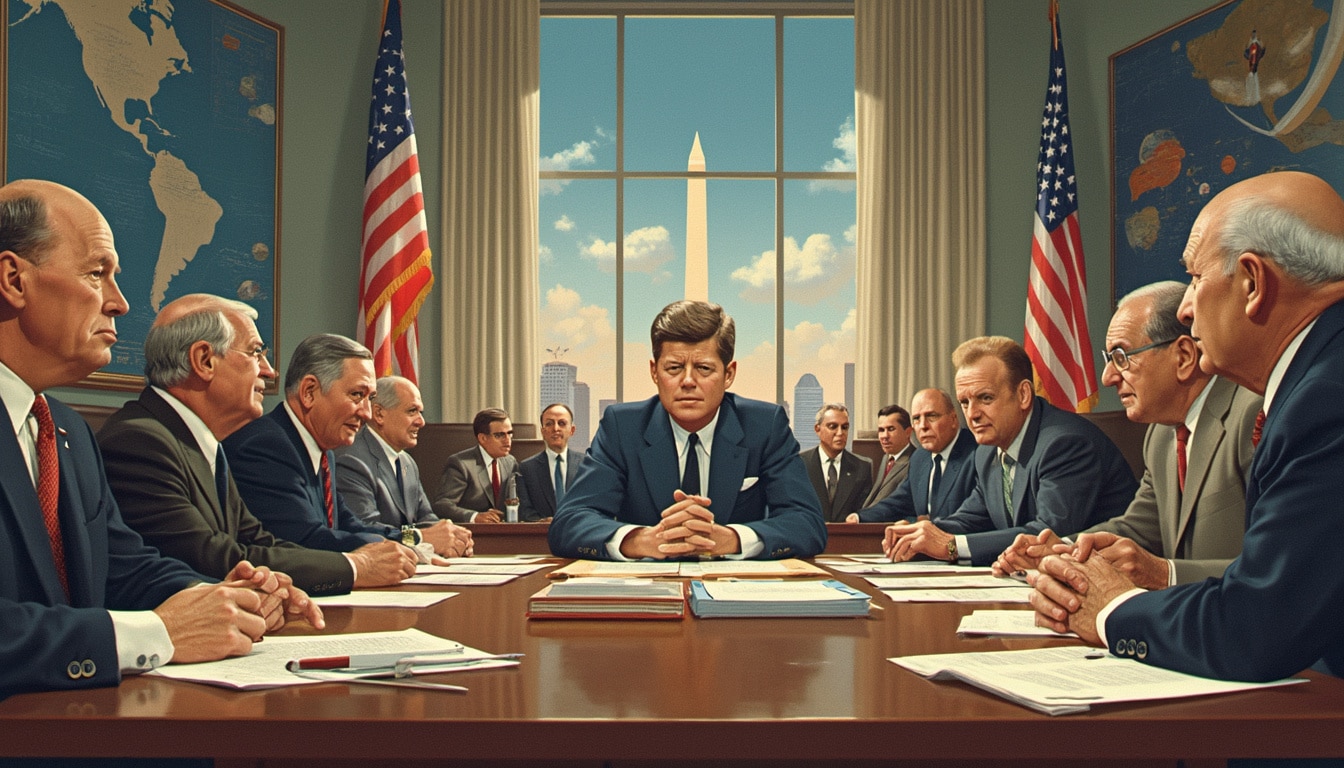The rapidly changing landscape of U.S. space policy is currently under the magnifying glass, particularly regarding President Trump’s anticipated decision on the National Space Council. With SpaceX playing a pivotal role behind the scenes, questions arise about the future of this strategic body. Enthusiasts of space exploration and policy veterans alike are intrigued by the implications of such a move. As we delve deeper, we’ll explore not only the motivations behind the Council’s potential dissolution but also how SpaceX’s influence could reshape the United States’ path in space exploration.
The Historical Context of the National Space Council
Established in 1958 during the Eisenhower administration, the National Space Council was designed to coordinate space policy across various government agencies. However, its existence has often been marred with uncertainty, as it has been disbanded and reformed multiple times. Initially reestablished by Trump in 2017, excitement surrounded this revival, especially among space advocates who viewed it as a significant shift towards prioritizing space exploration.
Underlining its importance, the Council is mandated to be chaired by the Vice President, providing a platform for discussing civil, commercial, international, and national security aspects of space. In recent years, however, the Council has faced pushback from various factions, culminating in discussions about its relevance and necessity in a rapidly evolving sector.

SpaceX’s Rising Influence
The ascent of SpaceX as a dominant force in the space industry is undeniable. Led by visionary Elon Musk, the company has not only achieved numerous milestones in spacecraft design and launch capabilities, but it has also disrupted traditional norms associated with space agencies like NASA. As SpaceX continues to set the bar high with its innovative technologies and ambitious goals, its lobbyists have become increasingly influential in shaping U.S. space policy.
Elon Musk has made no secret of his ambitions. His vision encompasses not only the successful transport of humans to Mars but also establishing a permanent presence there, which JFK would have likely approved given his own enthusiasm for human space exploration. However, with this influence comes significant scrutiny and contention regarding regulatory practices and government oversight.
The Pressure to Dismantle the Council
As reported, the move to dismantle the National Space Council is heavily lobbied by SpaceX representatives. According to insider reports, top lobbyist Mat Dunn, along with senior aides from Trump’s administration, view the Council as a waste of time, echoing the disdain Trump and Musk have for bureaucratic processes. This sentiment not only reflects a broader anti-bureaucratic attitude but underlines a strategic pivot towards a more streamlined approach to future space endeavors.
Furthermore, Trump’s absence of communication with the Council following his reelection victory raises eyebrows. While he has reached out to other agencies, neglecting the Space Council indicates a potential verdict rendered behind closed doors.
Changes in Space Policy Dynamics
The potential upheaval within the U.S. space policy landscape starkly illustrates the shift in power dynamics between government entities and private corporations like SpaceX. This alteration raises significant concerns among industry experts regarding the implications for long-term missions and objectives. As SpaceX thrives, advocates argue there needs to be balance rather than an outright preference for commercial entities at the expense of established agencies.
The fate of the National Space Council can provide localized priorities, yet if dissolved, it will likely further empower Musk’s direct influence over space policy without proper oversight. For example, under this potential deregulation, SpaceX could pursue aggressive strategies, potentially undermining safety regulations and environmental considerations essential for sustainable space exploration.

The Need for Oversight
As SpaceX continues to dominate the launch sector, having an overseeing body that systematically addresses operational criteria, safety regulations, and future objectives remains critical. The elimination of an independent body could result in unchecked expansion goals that prioritize profit over safety. This shift counters the traditional stance that government agencies, like NASA, would provide necessary checks and balances to corporate endeavors.
The National Space Council once acted as an intermediary, connecting private aspirations with public responsibility. Should its influence wane or dissolve, it raises alarm bells regarding oversight concerning international cooperation, environmental protection, and the long-term sustainability of space projects.
The International Landscape of Space Policy
As the U.S. contemplates the future of its space policy, global attention shifts towards how this transition will affect international relations, particularly concerning partnerships with entities like the European Space Agency, Roscosmos, and emerging commercial players worldwide. The potential dissolution of the National Space Council raises questions about U.S. commitment to existing collaborative agreements.
Collaborative efforts in space exploration often yield higher successes, while discord leads to missed opportunities for groundbreaking advancements, as seen in both government and commercial sectors. The strategic management of these relationships by the Council aimed to reinforce cooperation yet could become compromised without a centralized governing framework.

The Future of NASA and Space Exploration
The very identity of space exploration in the U.S. may pivot in a new direction should the National Space Council indeed be dismantled. As NASA finds itself increasingly reliant on commercial partners, the balance between governmental oversight and corporate innovation could reach an inflection point.
Currently, the agency’s dependence on services like SpaceX’s Falcon 9 for launching satellites and supplying the ISS paints an intricate picture. While private entities like SpaceX push the envelope of possibility, NASA’s traditional model increasingly risks losing bona fide governance, leading to potentials for commercial interests to outweigh public missions, thereby reshaping the essence of U.S. involvement in interplanetary endeavors.
Concluding Thoughts on the Shift of Power
The impending decisions regarding the future of the National Space Council stand at a crucial crossroads, reflecting larger themes of governance, corporate influence, and the spirit of exploration. By potentially aligning the Council’s fate with the wishes of SpaceX, the Trump administration might recast the narrative of space exploration in America.
Every stakeholder in this dialogue faces vital questions about the balance between ambition and oversight. Whether Trump’s choices indicate progress or peril in the realm of space remains to be seen, but one thing is clear: the evolution of U.S. space policy, shaped significantly by private industry, will set the stage for future exploration endeavors for generations to come.




Leave a Reply